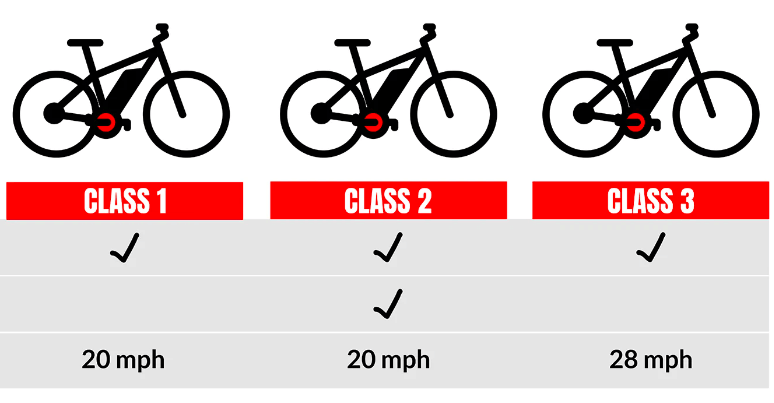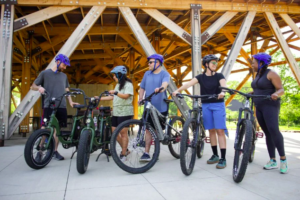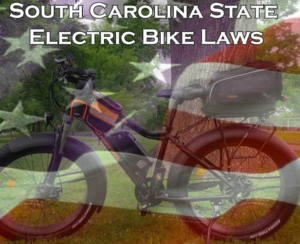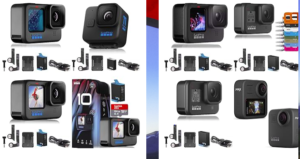Minnesota ebike laws.
In Minnesota, like in many other states, e-bike rules have developed to suit this burgeoning mode of mobility. Understanding the rules and regulations for riding an e-bike in Minnesota is critical for ensuring a safe and legal ride. In this post, we’ll go through Minnesota’s e-bike rules in depth and present a detailed guide for e-bike users.
Definition of an Electric Bicycle in Minnesota:
To comprehend Minnesota’s e-bike rules, it’s important to first define what an electric bicycle is. An electric bicycle is described in Minnesota Statute Section 169.011, as a bicycle with fully operable pedals and an electric motor with a power output of no more than 1,000 watts (1 kW). The motor should not propel the e-bike at speeds greater than 20 miles per hour on level ground.
E-Bike Classification:

E-bikes in Minnesota are classified into three categories depending on their motor power and operating characteristics:
E-bikes in Class 1:
These e-bikes are outfitted with a motor that only assists while the user is pedaling and stops assisting once the bike achieves a speed of 20 mph.
E-bikes in Class 2:
Class 2 e-bikes have a motor that can push the bike even when the rider is not pedaling, but the motor aid stops once the bike hits 20 mph.
E-Bikes in Class 3:
Class 3 e-bikes are identical to Class 1 e-bikes in appearance, but they can achieve speeds of up to 28 mph before the motor assistance is switched off.
Rider Requirements and E-Bike Operation:
E-bike users in Minnesota must follow the following laws and restrictions when operating their vehicles:
Minimum Age Requirement:
To operate an e-bike, riders must be at least 15 years old. Individuals between the ages of 12 and 15 are permitted to ride if accompanied by a parent or guardian.
Trails and bike paths law:
E-bikes are normally permitted on bike lanes and trails, unless local authorities or trail management impose special limitations.
Riding on the Road:
When riding on the road, e-bike users have the same rights and obligations as regular bicycle riders.
Speed Restrictions:
Regardless of e-bike class, the maximum speed restriction for e-bikes on highways is 20 mph.
Helmet Requirement:
While not mandated by state law for riders 16 years and older, it is highly recommended to wear a helmet for safety.
Licensing and registration:
In Minnesota, e-bikes are free from registration and licensing procedures. E-bikes, unlike motorcycles or mopeds, do not require license plates or other documents to operate.
Considerations for Safety:
E-bike users should observe the following safety measures to guarantee a safe riding experience:
- When traversing busy places or sharing the road with other cars, maintain a safe speed and use caution.
- Follow all traffic regulations, signals, and signs that apply to bicycles.
- When feasible, use dedicated bike lanes or routes.
- When passing pedestrians, give them plenty of room.
- Maintain the e-bike’s functional condition by doing routine maintenance on the brakes, lights, and tires.
- Use lights and reflectors to increase visibility, especially while riding in low-light settings.
20 FAQs About Minnesota ebike laws
Q: What is the definition of an electric bicycle in Minnesota?
A: An electric bicycle in Minnesota is defined as a bicycle equipped with fully operable pedals and an electric motor with a power output of no more than 1,000 watts (1 kW) that does not propel the bike at speeds greater than 20 mph on level ground.
Q: Are there different classifications of e-bikes in Minnesota?
A: Yes, Minnesota classifies e-bikes into three categories: Class 1, Class 2, and Class 3. These classes differ based on motor power and operational characteristics.
Q: Do I need a license to ride an e-bike in Minnesota?
A: No, e-bikes in Minnesota do not require a license or registration.
Q: How old do I have to be to ride an e-bike in Minnesota?
A: Riders must be at least 15 years old to operate an e-bike. However, individuals between the ages of 12 and 15 can ride if accompanied by a parent or guardian.
Q: Can I ride my e-bike on bicycle paths and trails?
A: In general, e-bikes are allowed on bicycle paths and trails unless specific restrictions are in place by local authorities or trail managers.
Q: Are e-bike riders subject to the same rules as traditional bicycle riders on roadways?
A: Yes, e-bike riders are generally subject to the same rights and responsibilities as traditional bicycle riders when operating on roadways.
Q: What is the maximum speed limit for e-bikes in Minnesota?
A: The maximum speed limit for e-bikes on roadways in Minnesota is 20 mph, regardless of the e-bike class.
Q: Are helmets required for e-bike riders in Minnesota?
A: While not mandated by state law for riders 16 years and older, it is highly recommended to wear a helmet for safety.
Q: Do I need insurance for my e-bike in Minnesota?
A: No, e-bikes in Minnesota do not require insurance.
Q: Can I ride my e-bike in bike lanes?
A: Yes, e-bike riders are generally allowed to ride in bike lanes.
Q: Can I ride my e-bike on sidewalks?
A: It depends on local ordinances. In some areas, e-bikes are allowed on sidewalks, while in others, they are not. Check local regulations for specific rules.
Q: Can I modify my e-bike to increase its speed or power output?
A: Modifying an e-bike to exceed the defined limits in Minnesota law is not permitted.
Q: Can I ride my e-bike in state parks or on state trails?
A: E-bike regulations in state parks and on state trails may vary. It is advisable to check with the park or trail management for specific rules.
Q: Can I ride my e-bike in national parks?
A: National parks follow federal regulations, and currently, e-bikes are not permitted on non-motorized trails in national parks.
Q: Can I ride my e-bike in the winter?
A: Yes, you can ride your e-bike in winter. However, be cautious of slippery conditions and ensure that your e-bike is equipped with appropriate tires for winter riding.
Q: Can I ride my e-bike in the rain?
A: Yes, you can ride your e-bike in the rain. Just like riding any bicycle, exercise caution and adapt your speed to the conditions.
Q: Are there any restrictions on the size or weight of an e-bike in Minnesota?
A: There are no specific size or weight restrictions for e-bikes in Minnesota.
Q: Can I carry passengers on my e-bike?
A: Yes, you can carry passengers on your e-bike as long as the e-bike is designed and equipped to accommodate multiple riders.
Q: Can I ride my e-bike on highways or interstates?
A: E-bikes are generally not allowed on highways or interstates in Minnesota. Stick to roadways where e-bike use is permitted.
Q: Do e-bike laws vary by city or county in Minnesota?
A: Yes, local ordinances may have additional regulations or restrictions regarding e-bike use. It is advisable to familiarize yourself with the specific rules in your city or county.
Conclusion:
As e-bikes grow increasingly popular in Minnesota, users must get acquainted with the state’s e-bike legislation. Riders may assure a safe and legal riding experience by learning e-bike categorization, operational requirements, and safety issues.
It’s always a good idea to remain up to speed on any changes to e-bike legislation and regulations, as they might alter over time. Remember that cautious and educated riding not only improves your safety but also helps to mainstream e-bikes into our transportation system.
Minnesota ebike laws: e-bike laws Minnesota.
Related articles
- Best Bike Trails in New Orleans for enthusiastic bikers:
- Electric bikes for sale New Orleans Louisiana
- Walnut Woods State Park Campground IA: Exploring Nature’s Serenity.
- electric bikes for Sale Des Moines. 60 Top Selling e-bikes in Des Moines.
- Understanding Arkansas’s Laws Regarding Electric Bikes: A Comprehensive Overview









